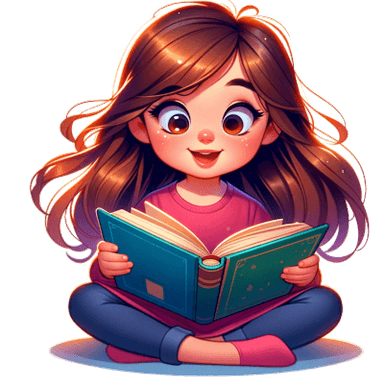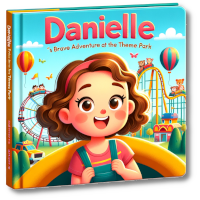Reading with children
a blog by Magic Tales

Turn the Page: Gender, Emotional Intelligence and the Power of Children's Literature
Turning the Pages of Emotions: Elevating EQ through Children’s Reading
Remember picking up your favorite childhood storybook and sinking into its enchanting world of adventure, mystery, or joy? Besides being a source of unbound excitement and creativity, children’s literature also plays a crucial role in discussing emotions and amplifying emotional intelligence (EQ). In this blog today, we bring an intriguing layer to this discussion – the influence of gender.
The Storybook Scenario of Emotional Intelligence and Gender
Emotional intelligence refers to the ability to identify and manage one's own emotions and recognize the emotions of others. EQ plays an integral role in a child's life—promoting empathy, enhancing social skills, and fostering resilience.
As our understanding of gender becomes more nuanced, it’s increasingly important not to pigeonhole children into stereotypes. The old notion that 'boys shouldn’t cry' or 'girls are more emotional' does more harm than good by suppressing and misdirecting a child's emotional development. That's where children's literature can change the script.
How Children’s Books Shape EQ
Children’s books with characters experiencing a wide range of emotions provide natural and safe environments for children to explore their own feelings. They offer valuable lessons about understanding, managing, and expressing emotions—an essential part of developing EQ.
However, not all children's literature upholds such balanced perspectives on gender. Recognizing this, contemporary authors are penning stories designed to break free from gender stereotypes, showcasing characters with rich emotional palettes, regardless of their gender.
Books Breaking the Gender-EQ Barrier
Books like 'The Boy Who Cried Ninja' or 'I Am Enough' successfully break down gender stereotypes, encouraging children to understand and express a diverse range of emotions without fear of judgment.
'The Boy Who Cried Ninja', in particular, illustrates the protagonist’s fear, guilt, and eventual relief, debunking the stereotype that boys have to suppress their feelings. 'I Am Enough' shares a beautiful message about self-confidence and emotional honesty for girls, teaching them it's perfectly okay to admit when they're scared, uncomfortable, or upset.
Writing the Future with Gender-Neutral Emotional Intelligence
Making emotional intelligence a gender-neutral journey not only supports balanced emotional growth among children but also spearheads social change. Educators, parents, and writers can dramatically enhance children's understanding of emotions by choosing and advocating books that promote emotional freedom, irrespective of one's gender.
Children's books that celebrate, acknowledge, and validate emotions across the gender spectrum hence become an essential tool for nurturing healthy emotional development in kids.
The world of children's literature is continually evolving, and so is our understanding of emotions and the dynamics around them. By turning the pages that offer insight into emotions and inclusivity, we can script a beautiful story of emotional intelligence divergent from the narrow confines of gender.
Want a personalized book to read with your child about Gender?
Takes as quickly as 30 seconds to create
Create a book about Gender

